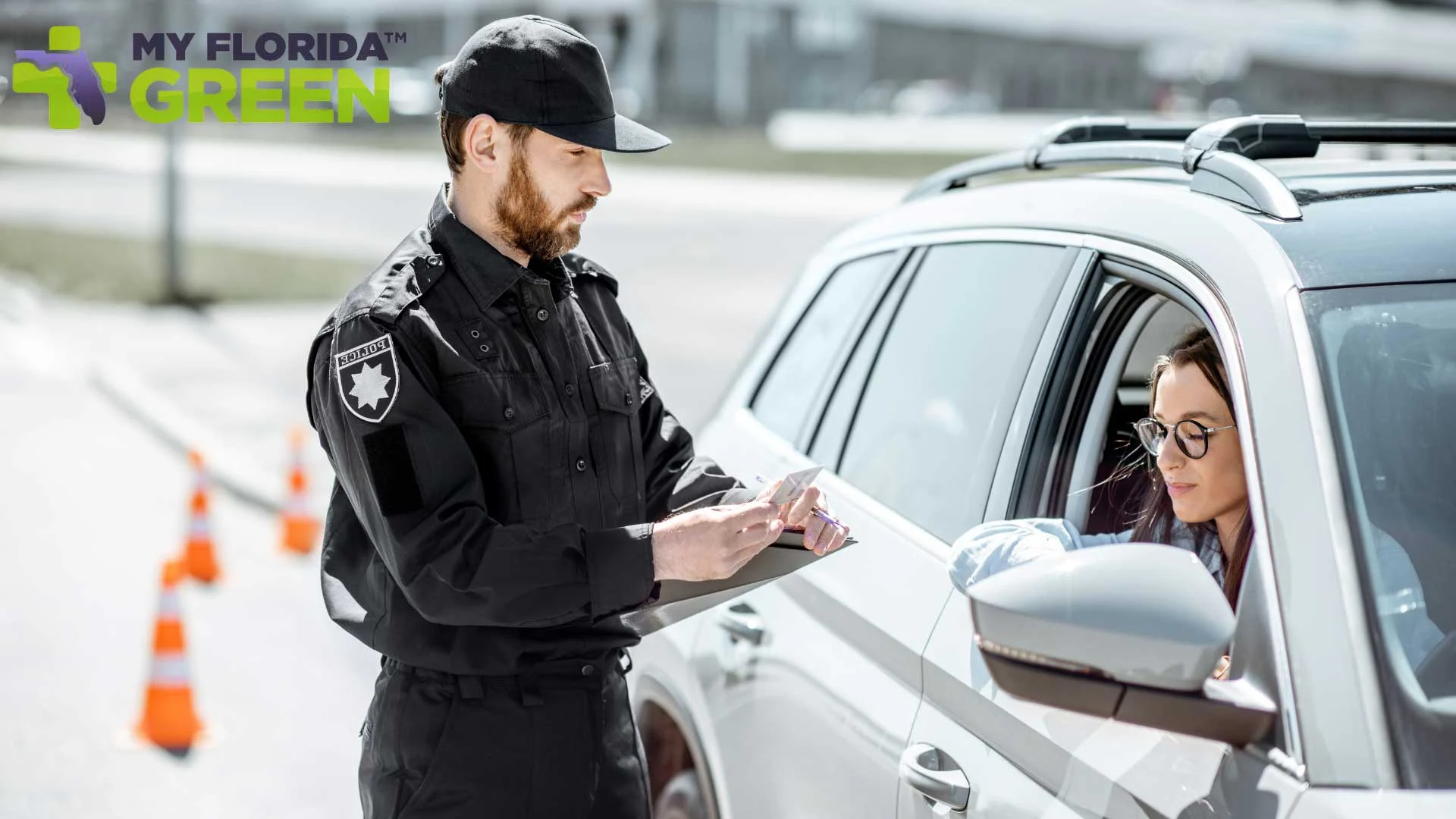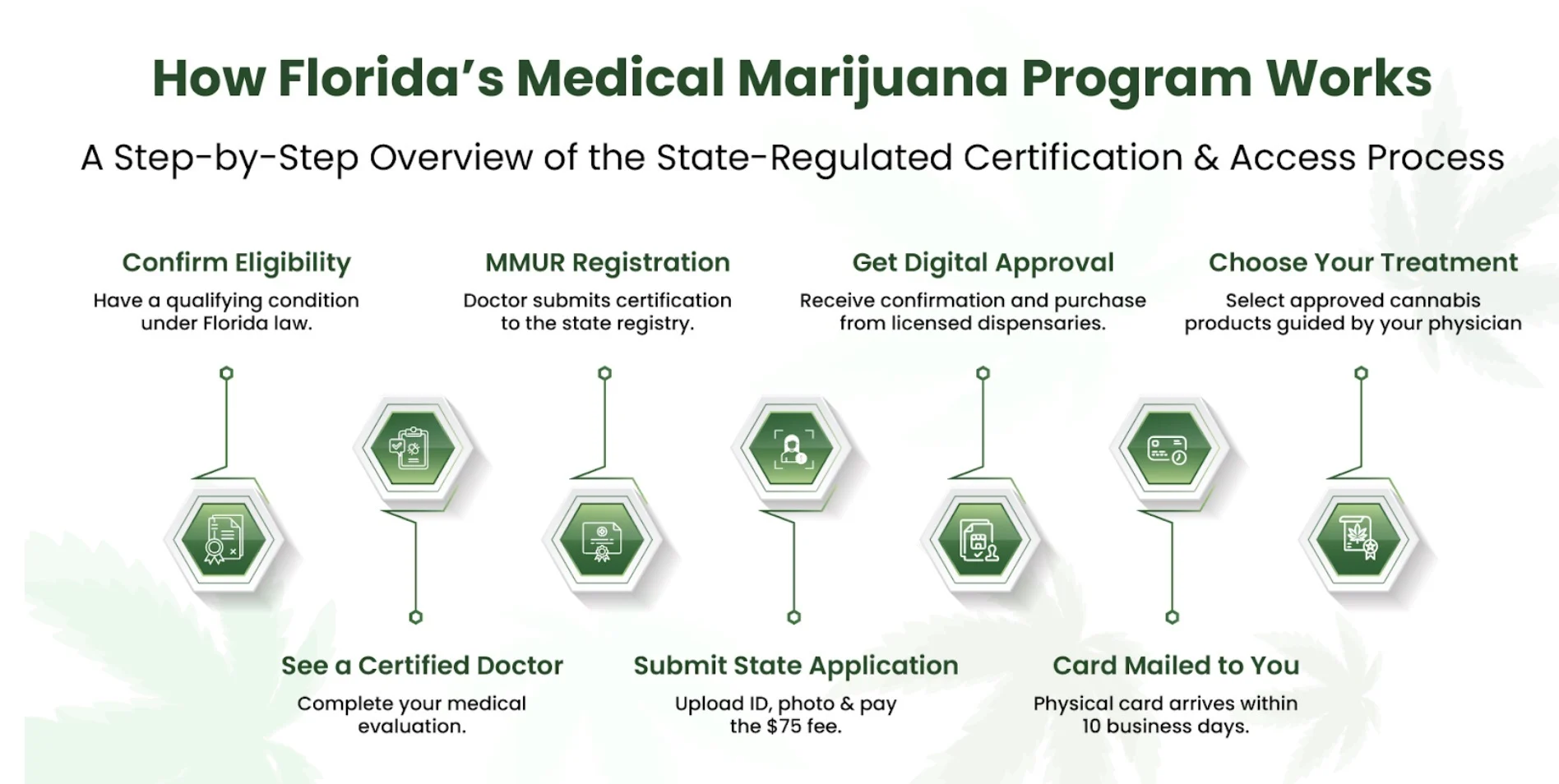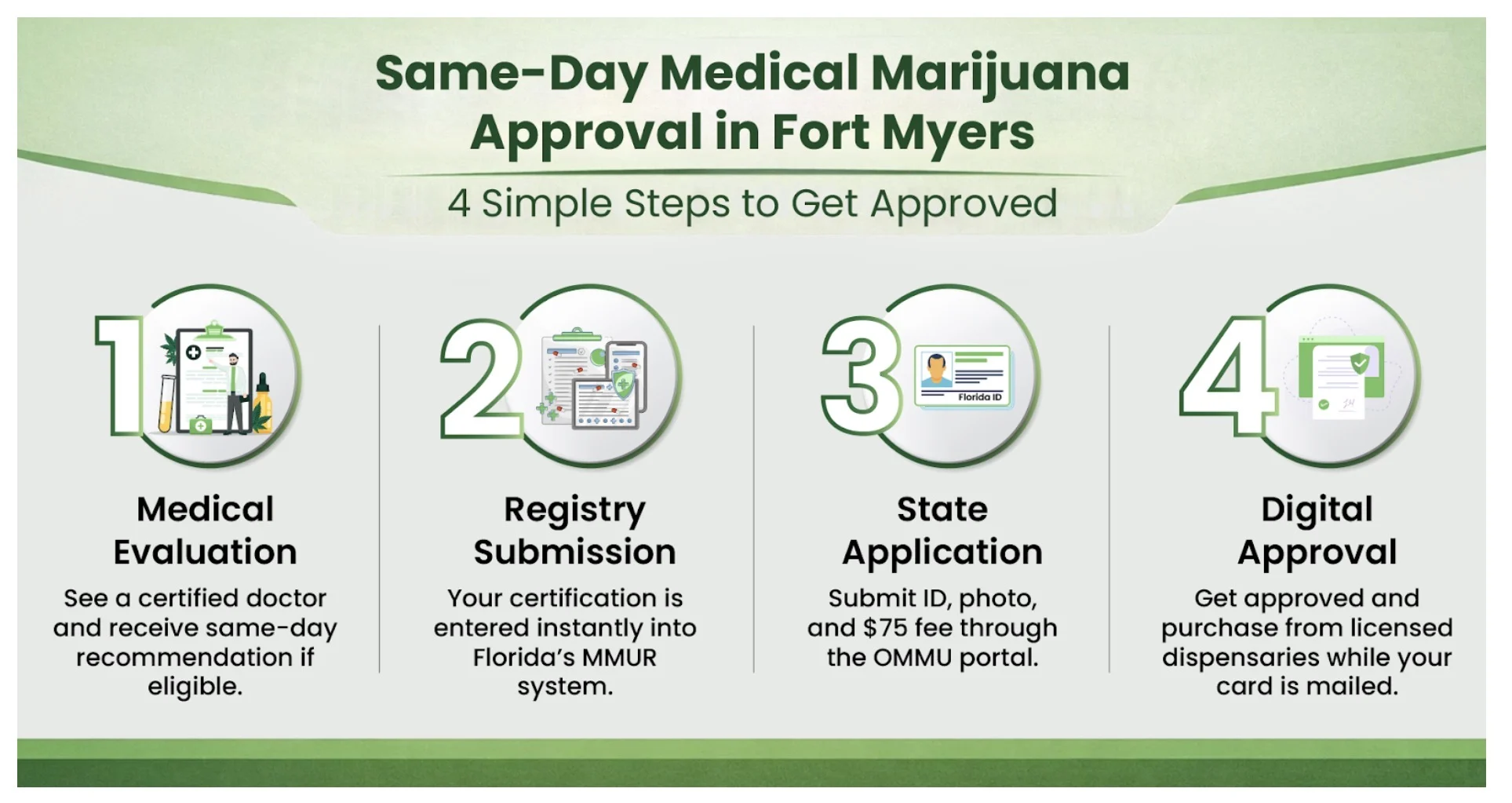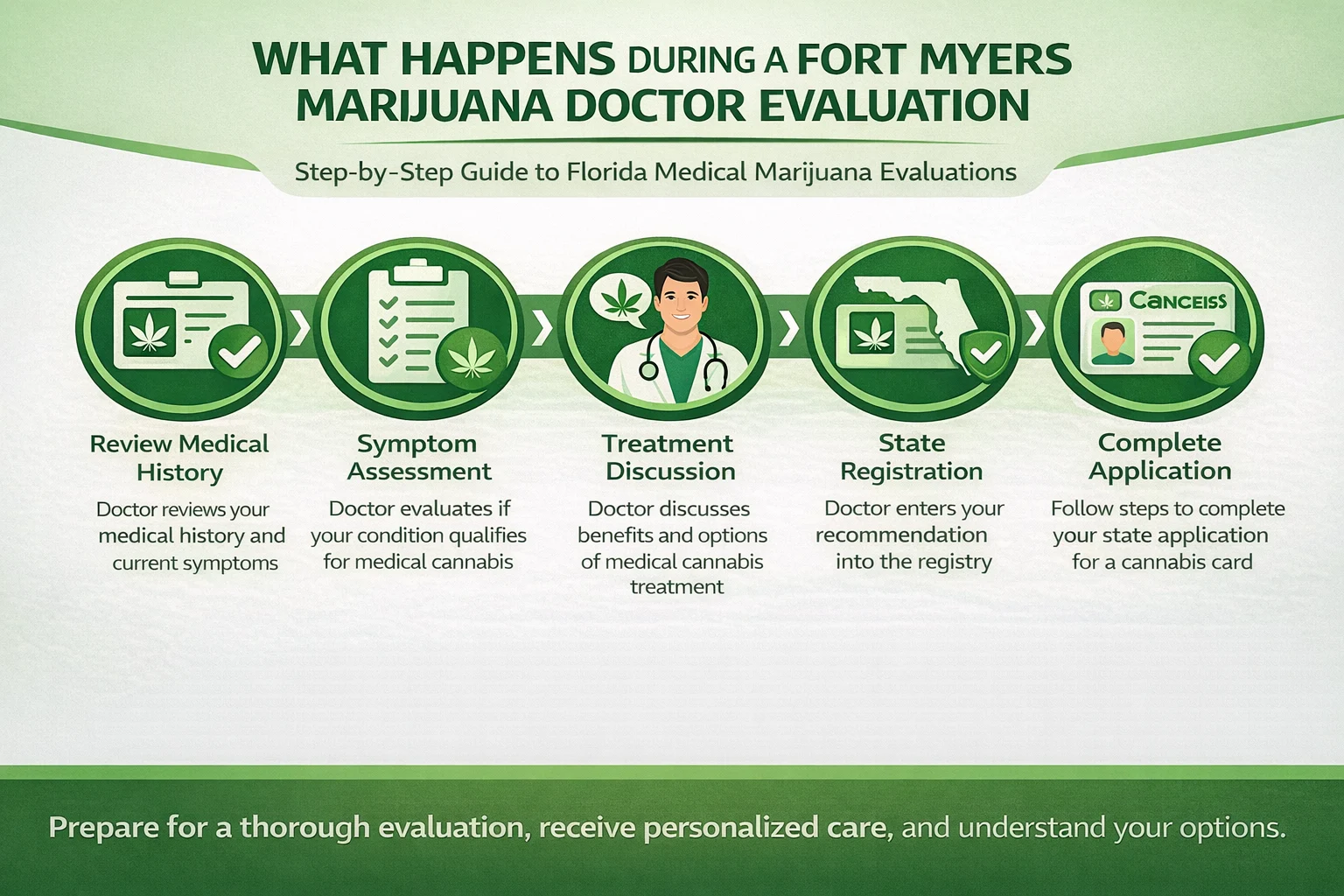As more and more people turn to medical marijuana for relief from conditions like anxiety, chronic pain, and sleep disorders, questions about safe and responsible usage have taken center stage. Maybe one of the most common of these is whether or not it’s safe or legal to drive after smoking cannabis.
Since the legalization of Marijuana, the State of Florida has developed a comprehensive certification process with laws and guidelines surrounding the use of Cannabis. Patients suffering from a selected group of qualifying conditions can legally use Marijuana for medicinal purposes. While medical marijuana is now legal to use for certified patients, they are not free to drive immediately after using it. Cannabis affects everyone differently, and the law treats impaired driving seriously, regardless of whether the product was legally prescribed.
This article will address how marijuana could be affecting your ability to drive, the law concerning driving after you have used cannabis, and what every patient needs to know before driving.
How Does Marijuana Impact Driving?
Driving is a complex skill that requires good judgment, fast thinking, and intense focus, all at the same time. Marijuana contains cannabinoids, THC and CBD. THC is the psychoactive ingredient in cannabis, and has a direct effect on the parts of the brain in charge of these essential processes. Research studies continue to demonstrate that cannabis can:
- Affects Reaction Time: It impacts a person’s ability to respond quickly to sudden changes.
- Impaired Coordination: The crucial hand-eye coordination needed for steering, braking, and accelerating can be significantly compromised.
- Distort Perception: Marijuana can alter your experience of time, speed, and distance, limiting your understanding of proper spacing or the state of traffic.
- Decrease Attention and Concentration: Maintaining focus on the road and processing multiple stimuli becomes difficult, increasing the risk of distraction.
- Affect Decision-Making: Your judgment and ability to make sound choices under pressure, like during an emergency maneuver, can be impaired.
While some individuals might feel they can “compensate” for these effects, research suggests that such compensation is often ineffective in real-world driving scenarios, mainly when unexpected events occur. Combining cannabis with alcohol or other medications can amplify these impairing effects, leading to an even higher risk of accidents.
Florida’s Stance on Driving Under the Influence of Cannabis
Under Florida law, a DUI charge isn’t limited to alcohol. It applies to any instance where a driver’s mental or physical abilities are “impaired” by a substance to a degree that jeopardizes their safety as well as that of others. This includes alcohol, prescription medication, and over-the-counter controlled substances, including marijuana.
Impairment Takes Precedence
Florida has no law that sets a specific THC blood level limit that, standing alone, defines impairment, like alcohol below 0.08%. While some sources reference a potential 5 ng/mL THC limit, this is not officially codified statewide. Instead, the key issue in cannabis-related DUIs is whether your normal functioning is impaired to a degree that makes it unsafe for you to drive. The law is more interested in your behavior and the degree of impairment rather than whether or not there is THC in your system.
How Law Enforcement Evaluates Impairment
If a police officer stops you and thinks that you are cannabis-impaired, he will look for signs of changed behavior and physical cues like:
- Swerving or erratic driving.
- Bloodshot eyes.
- Slowed speech or reaction times.
- Smell of cannabis
If the police believe that you are impaired, they will request that you undergo field sobriety tests (FSTs) to test coordination, balance, and mental status. A Drug Recognition Expert (DRE), specially trained to identify drug-impaired drivers, may be called in to assess your condition further.
Chemical Testing and Consequences
You may also be asked to take a urine or blood test to confirm the presence of THC or other substances. But the thing to bear in mind is that these tests detect metabolites which will remain in your system days or weeks after the effects of the drugs have worn off. While this complicates the legal process, refusal to take a chemical test can result in the immediate suspension of your driver’s license and be used as evidence against you in court.
Legal Penalties for Cannabis DUI in Florida
The consequences for a marijuana-related DUI are serious and include:
- Fines of $500 up to over $2,000, depending on the offense.
- Possible jail time, especially for repeat offenses.
- License suspension for at least six months.
- Mandatory DUI education courses.
- Community service requirements
For medical marijuana patients, a DUI conviction could also complicate future access to cannabis or affect your medical marijuana license status.
How Long Should You Wait to Drive After Using Cannabis?
While the observable effects of marijuana may wear off within a few hours, THC can remain in your body for a long time. The duration of both impairment and detection depends on several factors, including dosage, frequency of use, body fat percentage, metabolism, and the method of consumption. Here’s a general breakdown:
- Smoked or vaped cannabis: Effects last 2 to 4 hours, though THC can remain in the urine for 3 to 30 days, depending on use.
- Edibles (like THC gummies): Effects may last 6 to 8 hours or longer, with a slower onset and prolonged peak. THC may be detectable for up to a month or more, especially in regular users.
- Urine tests: The most common form of drug testing can detect THC for several days to a month.
- Blood tests: Detect recent use, usually within 1 to 3 days, but this varies.
- Saliva tests: Can detect use within the past 24 to 72 hours.
- Hair tests: May show THC exposure for up to 90 days, but are less commonly used for DUI-related cases.
If you are unsure if it’s okay to drive, it is wise to wait and be cautious. Allow your body some time to metabolize the THC, particularly if you’ve had smoked edibles or high-THC products.
Tips for Using Cannabis Responsibly as a Patient
To stay safe and compliant with Florida laws, patients should follow these best practices when using medical marijuana:
- Monitor your limits: Start with a low dose, especially if you are new to cannabis or trying a new product. Monitor how it affects your body before considering any activity like driving. Always take Cannabis with the guidance of an expert.
- Avoid driving immediately after use: Even if you feel “normal,” THC may still impair coordination and reaction time. Wait several hours before getting behind the wheel.
- Choose the right time and setting: Use cannabis when you’re at home or in a place where driving is not required afterwards. This helps you avoid the temptation to drive while effects are active.
- Track your response to different products: Keep a personal log of how long various products (edibles, oils) take to wear off. This can help you plan usage more responsibly. Discuss with your Marijuana physician, and adjust the dose accordingly.
- Never combine cannabis with alcohol or sedatives: Mixing substances can intensify impairment and significantly increase driving risks.
- When in doubt, don’t drive: If you feel drowsy, unfocused, or unsure about your state of mind, wait it out or use a rideshare option instead.
Responsible cannabis use is not just about legal protection; it’s also about ensuring your safety and the safety of others on the road.
What to Do If You’re Pulled Over After Using Cannabis
The most important thing is to stay calm, cooperative, and respectful with law enforcement. If an officer asks whether you’ve consumed cannabis, honesty is important, especially if you’re a registered patient with a valid medical marijuana card. Keep your MMUR card accessible, but only present it if requested. If the officer believes you’re under the influence, they may request a field sobriety test or a chemical test. Refusing these tests can result in immediate license suspension under Florida’s implied consent laws. While test results alone may not confirm impairment, combined with the officer’s observations, they can still lead to a DUI charge.
If you are arrested, hire an attorney who understands Florida’s medical marijuana laws. A qualified legal professional will guide you through your rights and help you address the situation appropriately.
My Florida Green’s Commitment to Patient Education and Safety
At My Florida Green, we are committed to guiding patients through every step of their medical marijuana journey, including how to use cannabis responsibly and stay compliant with Florida law. Our goal is not only to help you find relief for your qualifying condition but also to ensure you feel confident, informed, and supported.
We understand that questions about legality, safe use, and driving after cannabis consumption can be overwhelming. That’s why our team of experienced medical marijuana doctors takes the time to explain how cannabis may affect you personally. Whether you’re applying for a medical marijuana card in Miami, searching for a qualified doctor near you, or navigating the MMUR registry, we are here to help.
As laws continue to evolve, patient education remains a top priority. We’ll keep you updated, answer your questions, and ensure you’re using medical cannabis in a way that protects both your health and your legal rights.
If you are considering medical marijuana as part of your wellness plan and want expert guidance, contact My Florida Green today and take the next step toward safe and legal relief.









